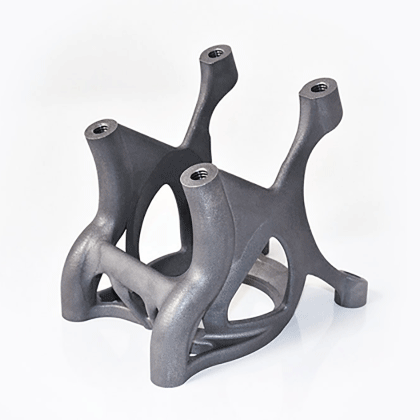How DMLS Printing is Revolutionizing Customized Part Manufacturing in Various Industries
Corps
In recent years, the manufacturing industry has witnessed a significant transformation with the introduction of innovative technologies such as Direct Metal Laser Sintering (DMLS) printing. This advanced manufacturing process has revolutionized the production of customized parts across various industries, offering unparalleled design flexibility, cost-effectiveness, and rapid prototyping capabilities.

The Evolution of DMLS Printing
DMLS printing, also known as metal 3D printing, has emerged as a game-changer in the manufacturing landscape. Unlike traditional manufacturing methods, DMLS printing utilizes a high-powered laser to selectively fuse metal powder, layer by layer, to create complex and intricate parts with exceptional precision. This additive manufacturing technique has opened up new possibilities for producing customized parts that were previously unattainable through conventional means.
Enhancing Design Flexibility
One of the key advantages of DMLS printing in revolutionizing customized part manufacturing is its ability to enhance design flexibility. Manufacturers can now create highly intricate and geometrically complex parts with ease, allowing for the production of customized components tailored to specific industry requirements. This level of design freedom enables engineers and designers to explore innovative concepts and push the boundaries of traditional part manufacturing.
Cost-Effectiveness and Rapid Prototyping
Another significant impact of DMLS printing on customized part manufacturing is its cost-effectiveness and rapid prototyping capabilities. By eliminating the need for expensive tooling and reducing material wastage, DMLS printing offers a more economical solution for producing low-volume, high-value parts. Additionally, the ability to rapidly prototype and iterate designs accelerates the product development cycle, allowing for quicker time-to-market and enhanced competitiveness in various industries.
Applications Across Diverse Industries
The influence of DMLS printing in revolutionizing customized part manufacturing extends across a wide range of industries, including aerospace, automotive, healthcare, and consumer goods. In the aerospace sector, DMLS printing enables the production of lightweight, high-strength components for aircraft and spacecraft, contributing to improved fuel efficiency and performance. Similarly, in the healthcare industry, DMLS printing facilitates the creation of patient-specific medical implants and prosthetics, offering personalized solutions for enhanced patient care.
Furthermore, the automotive industry benefits from DMLS printing by enabling the production of complex engine components and lightweight structural parts, leading to improved vehicle performance and fuel economy. In the consumer goods sector, DMLS printing allows for the customization of high-quality, intricate parts for luxury products, jewelry, and electronics, catering to the growing demand for personalized consumer experiences.
As the adoption of DMLS printing continues to expand, its impact on customized part manufacturing in various industries will undoubtedly shape the future of manufacturing, driving innovation and unlocking new possibilities for product development and customization.










commentaires